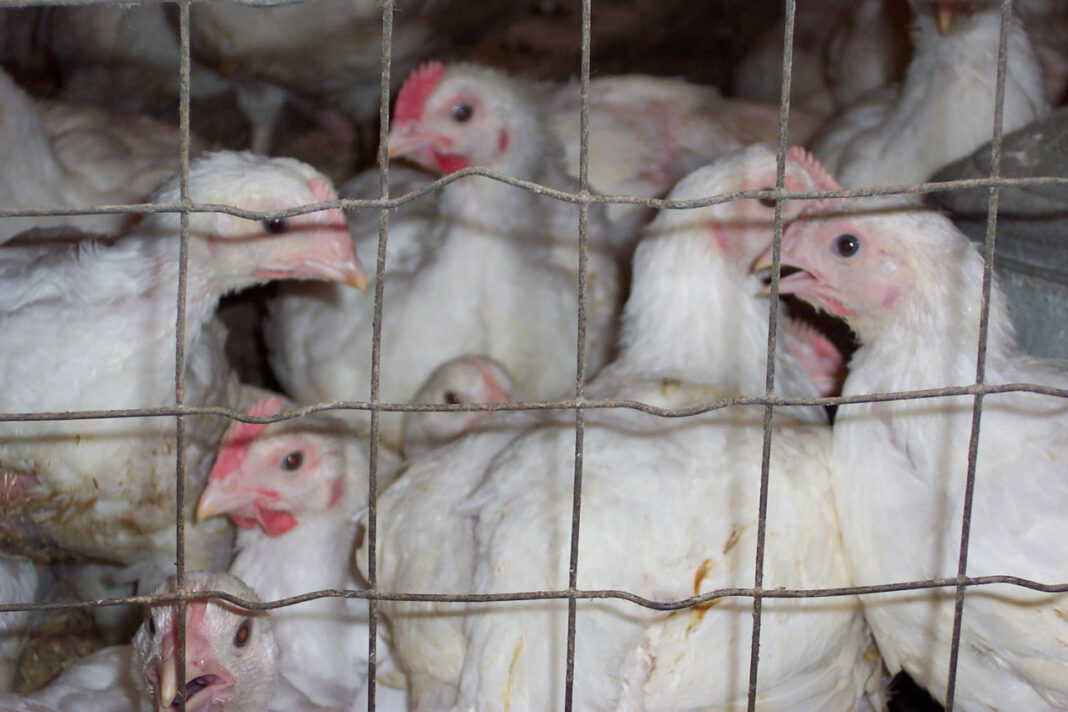Chickens are the most commonly kept domestic animals. People consume around 120 million tons of chicken each year and also over a trillion eggs. In terms of weight, it is 80 million tons of eggs each year. Although chickens are an important source of protein for humankind, most chickens suffer from very cruel treatment.
Short and hard life
Chickens have a short life, during which they have to endure a lot of suffering. On the first day of life, males are ground to meat. The female usually spends her life in a cage and lays about 300 eggs a year. This is three times more than in the wild. After the first year of life, most females are killed because their productivity decreases – they lay fewer eggs. The demand for large eggs is still growing on the market. Hens are prone to fractures when laying large eggs. Based on an analysis carried out in Denmark, up to 85% of these hens suffer keel bone fractures.
Laying large eggs is very painful
Laying large eggs is a big pain for the hen. Many hen farmers claim that this is not true. However, the opposite is true, it is a painful process and there are often blood stains on the eggs. A new study has shown that keel bone fractures are a problem that is getting worse.
“Depending on the housing system, fracture prevalences exceeding 80% have been reported from different countries. No specific causes have yet been identified and this has consequently hampered risk factor identification,” write the researchers led by Michael J.Toscano from Bern University.
The objective of the study was to investigate the prevalence of keel bone fractures in Danish layer hens. The researchers wanted to identify risk factors that lead to a large number of fractures. A total of 4794 birds from 40 flocks were examined. Each of the flocks was 60 weeks old and this is the time the chickens travel for slaughter to avoid low egg production. Caged hens were the worst off. They have the highest number of fractures.
“In flocks from non-caged systems, fracture prevalence in the range of 53% -100% was observed regarding the prevalence in flocks from enriched cages ranged between 50-98%,” the researchers explain. The presence of multiple fractures was also not uncommon.
The situation in the world may be worse
The study only examined hens in Denmark. Hens from other parts of the world are expected to have even higher fractures. Denmark is one of the countries that cares strictly and animal welfare. Consumers should know the conditions under which chickens are kept. If you do not want to support this cruel business, buy only eggs that are from cage-free farms and do not always buy the biggest eggs. The study was published in PLoS.
Source:
https://journals.plos.org/plosone/article?id=10.1371/journal.pone.0256105
https://www.theguardian.com/uk/2009/mar/12/chickens-welfare-eggs

















